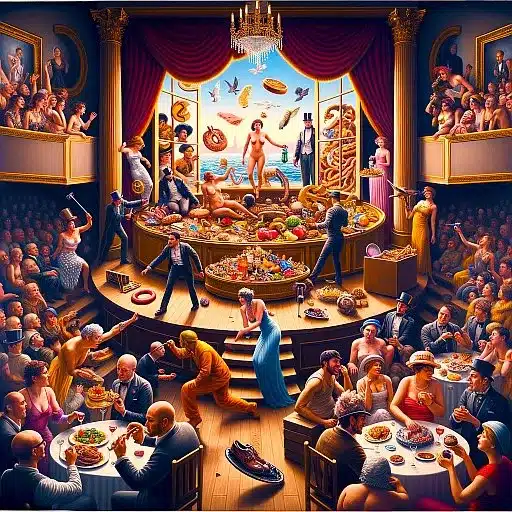I have added a new poetic prose entitled “Bacchus, Tobacco, and Venus: over the centuries faithful.” It is a tribute to pleasure, to life, and in defense of all those activities that the most boorish moralism tends to stigmatize and relegate to the “cellar of vices.”
Poetic prose: Bacchus, Tobacco, and Venus: over the centuries faithful
Note on the cult of the god Bacchus
Bacchus, also known as Dionysus in Greek mythology, was the god of wine, celebrations, and ecstasy. He was often associated with the joyous and wild festivals celebrating his name. These festivals, known as Bacchanalia, were lively and energetic gatherings that praised Bacchus and engaged in wine consumption.
One of the main characteristics of Bacchus and the festivals held to honor him was the emphasis on wine. Wine played a central role in these festivals, symbolizing the essence of Bacchus himself. Wine consumption during festivals was believed to cause a state of ecstasy and unbridled joy.

Another remarkable aspect of these celebrations was their lively and exuberant nature. Bacchus festivals were known for their vibrant and energetic atmosphere, which was full of music, dancing, and revelry. Participants wore elaborate costumes, adorned themselves with ivy and vines, and engaged in ecstatic dancing and singing, all in honor of Bacchus.
These festivals were not limited to a particular place. Bacchus and his followers roam the countryside, celebrating in various settings such as forests, mountains, and natural landscapes. They often led processions, known as “bacchic processions,” where they marched through the streets, singing and dancing in honor of Bacchus.
In addition to the actual festivities, the bacchanalia also had a spiritual aspect. It was believed that by participating in these celebrations, individuals could achieve a state of divine communion with Bacchus. This connection was thought to bring blessings, fertility, and a sense of liberation.
Overall, Bacchus and the festivals organized to praise him with wine were characterized by a focus on celebration, ecstasy, and indulgence. They offered participants the opportunity to let go of their inhibitions, enjoy the joy of life, and connect with the divine through wine-drinking and exuberant parties.
If you like this poem, you can always donate to support my activity! One coffee is enough! And don’t forget to subscribe to my weekly newsletter!


